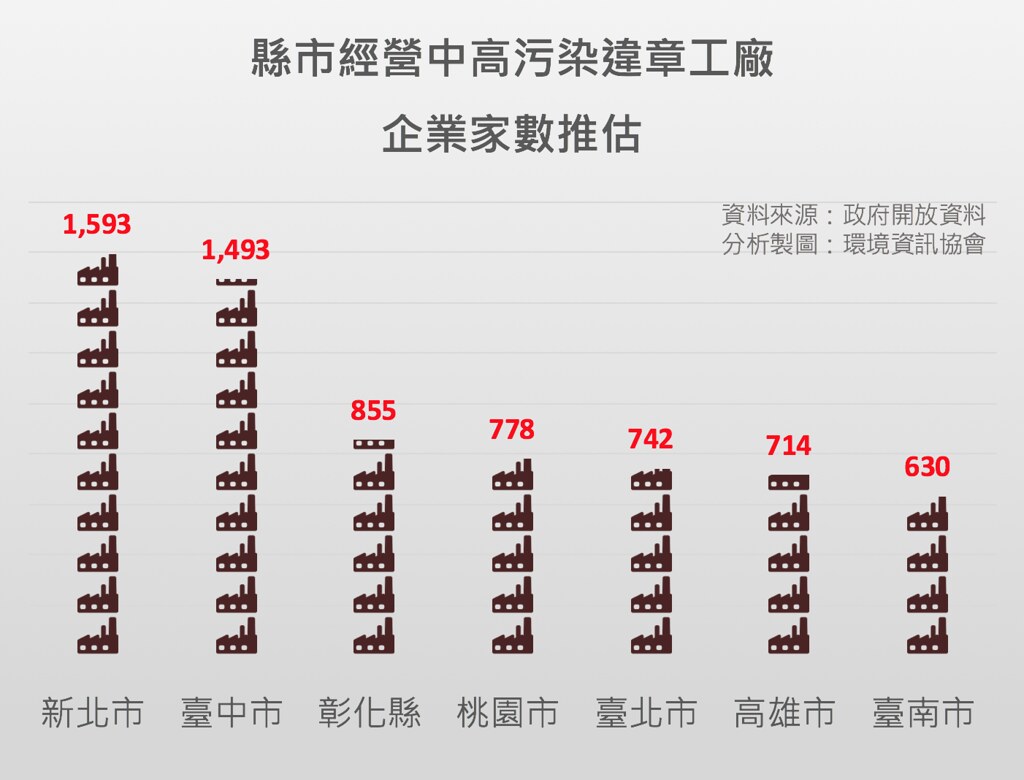130000 what about the illegal factory? The Executive Yuan put forward a plan in early July.
Share +1 Tweet Email
Articles 33 and 34 of the controversial Factory Management Guidance Law (hereinafter referred to as the Labor Assistance Law) violate the factory guidance system. In the past eight years, only 40 enterprises have been successfully transformed into legal operations. Will the extension be extended after the deadline of 2020? Executive Yuan officials said that the revision of the law involves the responsibilities of many agencies, including the Council of Agriculture, the Ministry of Economic Affairs, the Ministry of the Interior, and the Environmental Protection Agency. The relevant ministries are coordinating and there is no clear consensus. It is expected that an inter-ministerial consensus will be established within one month and a revised version of the law will be drafted. A special report will be submitted to the Legislative Yuan on July 2.
The Central Committee should face up to the problem this time
Lu Chen-hui, a member of the Executive Yuan's Department of Economy, Energy, and Agriculture, explained in a statement at a protest press conference on May 31 that "illegal factories are legal on the spot and the extension of the counseling period will not be the version proposed by the Executive Yuan." According to the current direction of law revision, counties and cities must put forward clean-up plans, but the schedule of counties and cities can be discussed later." Yun Ruilong, head of the Central Office of the Ministry of Economic Affairs, who was also at the scene, also said: "The Ministry of Economic Affairs will carefully study and discuss, and try to avoid a delay in the counseling period."
Xu Zhengtong, director of the Central Office of the Ministry of Economic Affairs, which is mainly responsible for illegal factory operations, also said,"If the factory can be guided, the government will give assistance, and if it cannot be guided, it will still have to close the factory." You Zhenwei, deputy director of the Industrial Bureau of the Ministry of Economic Affairs, explained that "unregistered factories existing before May 20,2016 must meet three requirements: they must be low-pollution industries, have no public security doubts, and have legal tax payment before discussing the treatment plan, including relocation of factories, closure of factories, or legal guidance. I hope that this problem can be solved systematically at one time." At present, relevant laws and policies are still pending, and relevant ministries will hold close consultations this month and submit a special report to the Legislative Yuan on July 2.


There are 332 medium and high polluting factories regulated by the government, but 8,400 are estimated to be taxed, accounting for less than 5%. Source: Environmental Information Society
What is the specific plan for the relocation of polluting illegal factories from farmland? Director Xu Zhengzong said,"The county and city will first conduct an inventory, and the relevant schedule and division of labor will also be planned out. Especially in large industrial counties with serious problems of illegal factories, the Executive Yuan will not be confused this time, and will face up to the problem of illegal factories." The relevant contractor of the Ministry of Economic Affairs said,"At present, Changhua County and Taichung City have clearly proposed that unregistered factories should be inspected. Changhua County plans to conduct a street-sweeping survey of 26 towns and cities in the whole district, while Taichung City will conduct a regional inspection around the raft stream." Other cities and counties maintain the method of checking only when people report.
Changhua County Lin Qichun section chief explained that this inventory belongs to the "factory management geographic information system database establishment and system update plan," to combine guidance measures, investigation manufacturers move factory willingness, but only grasp the information, will not involve subsequent land or building illegal use punishment.
Guo Hongyi, a full-time lawyer for the Environmental Rights Protection Foundation, points out that "county and city governments already have the power to investigate factories according to the Labor Aid Law. As long as the factory registration is not completed, the local government should impose fines on manufacturers who engage in manufacturing and processing without authorization. If the deadline is set for improvement, the factory registration is still not completed, and the fines can be imposed continuously until the suspension." Chen Jui-pin, secretary-general of the Taiwan Environmental Information Association, believes that "even known illegal factories should be punished first, and those found later can be added, and there is no need to wait until all inspections are completed before starting to deal with them."
Share +1 Tweet Email
Related
- A course of planting techniques and methods on how to grow carrots
- How to plant the latest tulips?
- Is it better to pick tea in the morning or in the afternoon? When is the best time for tea to be picked? what is the third or fifth tea?
- Launch Yuanxiao Happy combination Haocha + Tea Yuan healthy Taste
- Penghu Tourism "Fireworks 20 Parade with You"
- 2022 West Lake Happiness holds "Digital Revitalization Voucher" and draws iphone13 and laptop.
- Banqiao Fuzhou social houses are designed to change start-up combined with police elimination to create a safe and livable environment
- The convenient measure of "mechanical weeding" in Xinbei has been abused and the Agriculture Bureau has imposed heavy penalties on the illegal land consolidation.
- Changgeng University Joins Hands with Four Memory Factories to Rescue Memory Talent Shortage
- The list of Taiwan's top 100 MVP managers is listed by the Director-General of the Farmers' Association of Sanxia District.



